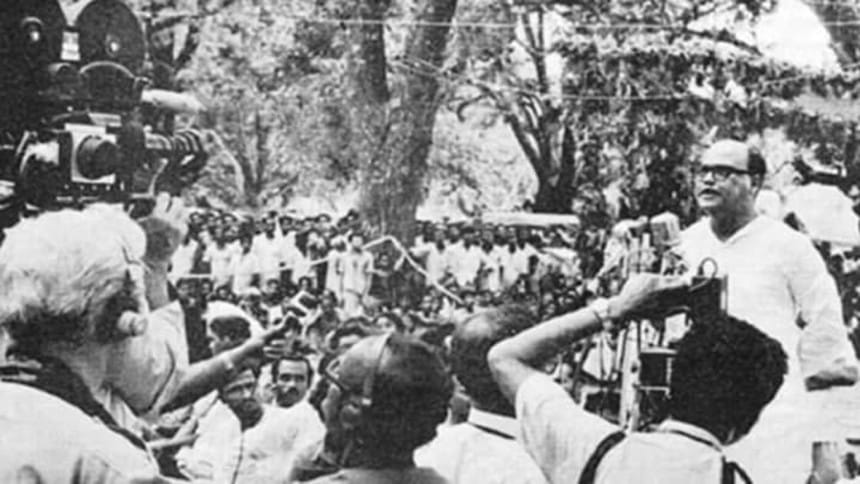Time to declare a Republic Day in Bangladesh

Bangladesh was born as an independent state through the Declaration of Independence on March 26, 1971 (hence, the Independence Day) and began its sovereign life after emerging victorious on December 16 (hence, the Victory Day). In between these days, the country fought a bloody nine-month war with the Pakistani occupation forces. Although fragmented "battles" with the occupation forces had started here and there after the brutal crackdown on unarmed civilians on early March 26, a more organised war effort ensued following the issuance of the Proclamation of Independence on April 10, especially after the formation of a provisional government for the People's Republic of Bangladesh and formal oath taking on April 17, 1971. Therefore, I propose that we should declare April 17 as the Republic Day of Bangladesh. Our Republic Day can be a unique one, distinct from our Independence Day, Victory Day or Constitution Day (November 4, 1972).
The most important part of the Proclamation of Independence is where it says: "We, the elected representatives of the people of Bangladesh, as honour-bound by the mandate given to us by the people of Bangladesh whose WILL is supreme, duly constituted ourselves into a Constituent Assembly, and having held mutual consultations, and in order to ensure for the people of Bangladesh equality, human dignity and social justice, DECLARE and CONSTITUTE Bangladesh to be a sovereign Peoples' Republic and thereby confirm the declaration of independence already made…"
Although this proclamation was made on April 10, 1971, the office-bearers of the new People's Republic took their oath a week later, on April 17. Thus, the Republic of Bangladesh actually started functioning on April 17. Therefore, in essence, it can be said that Bangladesh as a republic came into being on that day. It is only reasonable that we give this day its due recognition.
Successive governments of independent Bangladesh have so far observed April 17 as "Mujibnagar Day", a reference to the Mujibnagar provisional government formed on that day. There is nothing wrong with such observance, but in my view, it is not enough. In fact, I think it doesn't adequately capture the true significance of the day that goes beyond the formation of one government and actually marks the start of the journey of a republic. It is through the Proclamation of Independence by the public representatives of this new republic that the world came to know of us, our independence struggle, and the brutalities of the enemy we were facing. The world now knew who to interact with while dealing with the movement to free Bangladesh. The formation of the republic, while clearing any remaining doubt about the legitimacy of our independence struggle, also greatly helped our war efforts by bringing the "fragmented" battles under a central command. Let me offer some more reasons as to why this day deserves reassessment to match its significance in our history.
We know that the declaration of independence was first made by Bangabandhu himself just after 12 am of March 26, 1971 as the Pakistani forces cracked down on unarmed Bengalis. Then this message was reiterated by Mr. Hannan of Chittagong Awami League via Swadhin Bangla Biplobi Betar Kendro around 7:40 pm of March 26. The following day, Major Ziaur Rahman "announced" the same message with military vigour and it further emboldened the general masses. I think if no government was formed and the liberation war was not organised centrally in the manner that it was, the unorganised battles taking place here and there would have failed to help us achieve victory.
Even if a "government" was formed but it was not helmed by leaders like Tajuddin Ahmad and Syed Nazrul Islam, as prime minister and acting president respectively, what would happen then? If someone else assumed the position of prime minister, say Khandakar Mushtaq Ahmed or anyone else of the student leaders' choice, and somebody else other than Syed Nazrul Islam assumed the position of acting president, the nation could probably not have achieved freedom that year. Or worse, we might have been trapped again in the Pakistani net with the "governors" likely preferring a quick fix and forming a coalition with West Pakistan, as Mushtaq would probably choose to do. The point I am trying to make here is, not only was the formation of the government extremely important in the history of our republic, but those who led this government in exile—able lieutenants of Bangabandhu Sheikh Mujibur Rahman whose vision they carried forward—were equally important in guiding us toward our destination.
By declaring April 17 as the Republic Day and celebrating it in a befitting manner, the nation can show proper respect to all our leaders—not just those in the government-in-exile but also those who executed their plans on the ground—and their enormous contributions to the building of this nation. There can't be a better time for such recognition than on the occasion of the golden jubilee of our independence.
Abdus Sattar Molla, PhD, is a retired professor of zoology. Email: [email protected]

 For all latest news, follow The Daily Star's Google News channel.
For all latest news, follow The Daily Star's Google News channel. 



Comments